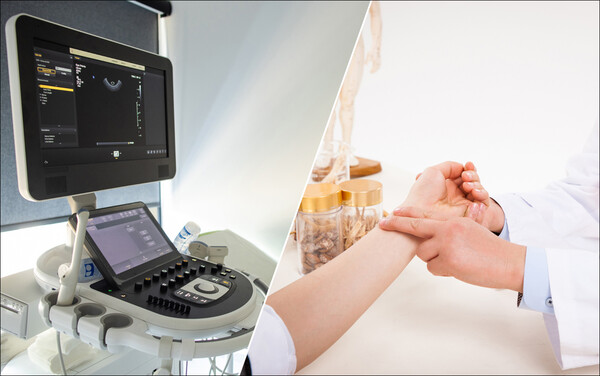The year 2023 marked significant transformations in the medical and pharmaceutical sectors. Despite facing resistance from the medical community, President Yoon Suk Yeol's administration declared its intention to increase the number of medical school seats starting in 2025. Additionally, 2023 witnessed the opening of the digital therapeutics market. The initiation of telemedicine this year led to an ongoing conflict between the medical community, opposing such practices, and the Ministry of Welfare, advocating for them, expected to persist into 2024. In the pharmaceutical industry, numerous domestic companies ventured into the global market. Korea Biomedical Review has compiled the 10 most noteworthy healthcare developments in 2023. -- Ed.

This year, the Supreme Court allowed Oriental medicine practitioners to use not only ultrasound diagnostic devices but also electroencephalogram (EEG) devices.
The court also ruled that a bone density meter is a "medical aid" and does not pose a "health and hygiene risk," and that Oriental medicine practitioners’ access to the government’s Covid-19 information management system is justified.
The Supreme Court emphasized that determining whether the use of diagnostic medical devices by an Oriental medicine doctor constitutes a medical practice beyond the scope of their license requires a comprehensive assessment.
This assessment should consider factors such as the existence of regulations prohibiting the use of diagnostic medical devices by an Oriental medicine practitioner, the potential risks of health and hygiene harm beyond the typical use of such devices in aid to diagnosis, and the clarity of the connection between the use of diagnostic medical devices by an Oriental medicine doctor and the principles of Oriental medicine practice.
The court highlighted that a reasonable judgment must be made in accordance with social conventions.
This led to a series of legal actions favoring Oriental medicine practitioners.
On Aug. 18, the Supreme Court dismissed an appeal from the Ministry of Health and Welfare, deeming the suspension of the license for A, an Oriental medicine practitioner who utilized an EEG device to diagnose Parkinson's disease and dementia, as unjustifiable.
The court said the use of EEG did not fall under the category of “medical practice other than licensed.” Furthermore, the court concluded that there is a necessity to permit the utilization of medical devices that align with the principles of Oriental medicine.
In September, a court acquitted an Oriental medicine practitioner who was charged with practicing medicine without a license for incorporating a bone density meter into his practice. The court determined that the bone densitometer was employed as a tool for medical diagnosis and did not present any health or hygiene risks.
The prosecution is appealing the court's verdict.
In November, a court ruled in favor of the Association of Korean Medicine (AKOM) in the first round of an administrative lawsuit against the Korea Disease Control and Prevention Agency (KDCA) regarding Covid-19 rapid antigen tests. The association has been actively encouraging its members to use Covid-19 and flu test devices since the court ruling, which granted access to the government’s Covid-19 information management system.
The AKOM has proactively undertaken the education of its members through organized academic seminars focused on the utilization of diagnostic devices in Oriental medicine practice. The recent Supreme Court ruling, permitting the use of ultrasound diagnostic devices, has piqued curiosity about its practical implementation. The AKOM views this ruling as a "valuable impetus to break the shackles of restrictions on the use of modern diagnostic devices for Oriental medicine," and it remains to be seen whether it will result in the actual adoption of such devices.
Related articles
- Supreme Court upholds Oriental medicine doctor's right to use EEG device
- Koreans prefer oriental medicine for facial paralysis. Is this appropriate?
- ‘Disposable cupping cups’ made most insurance claims last year
- [Top 10 Healthcare News in 2023 ⑤] Telemedicine pilot project starts without law amendment
- [Top 10 Healthcare News in 2023 ⑧] Alarm bells of collapsing essential care were heard everywhere
- [Top 10 Healthcare News in 2023 ⑦] Korean CDMO companies show strong presence in global market
- [Top 10 Healthcare News in 2023 ⑨] Korean pharmaceutical companies expand foothold in global markets
- [Top 10 Healthcare News in 2023 ⑩] Controversy continues over drug quality amid frequent mislabeling
- Oriental medicine practitioners enthusiastic about using ultrasound diagnostics

